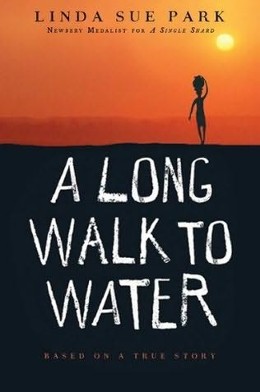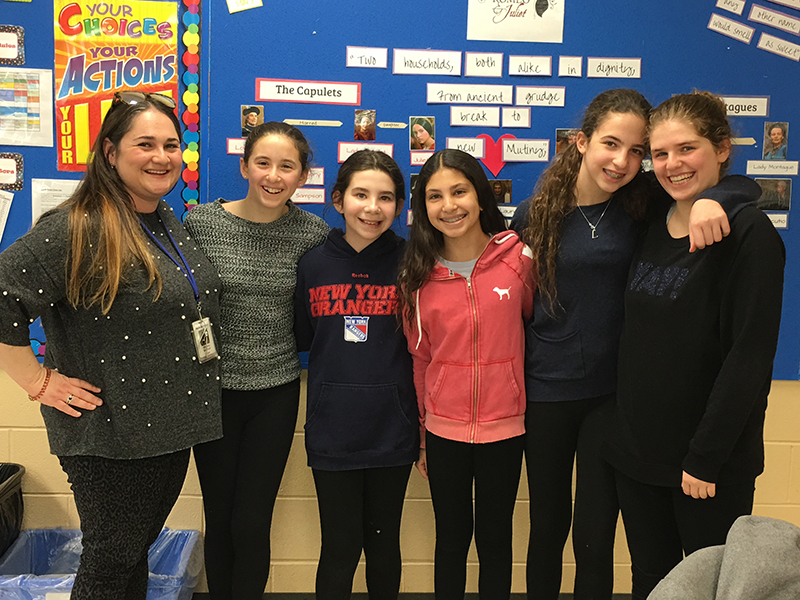Inspired by a book about a Sudanese girl who walked eight hours a day to bring drinking water to her family, five Grade 7 students at Bialik Hebrew Day School in Toronto embarked on a fundraising initiative to provide easier access to water for people in rural Sudan.
Lee Bracha, Adina Fridman, Hallie Haberman, Shiraz Meisels and Noa Melnick read A Long Walk to Water – a story about Nya, a girl who can’t go to school because she spends her days travelling on foot to get water – in their English class.
“When we heard that Nya … wasn’t able to get an education, that was one of the reasons we wanted to raise money to help girls and villages,” Meisels says.
The short novel also focuses on Salva Dut, a “Lost Boy” of Sudan who fled to Ethiopia, to escape the civil war in the mid-1980s. Dut’s father was hospitalized in Sudan, due to the meagre quality of the water he had to drink.
This prompted Dut to begin a charity, called Water for South Sudan, that builds wells in the region, in order to ensure that clean drinking water can reach hundreds of thousands of people.
“His thought process was, ‘I don’t want more people to have what happened to my dad, so I want to be able to give people the necessity they need, so they won’t end up in hospitals,’ ” Fridman says.
READ: BIALIK RECOGNIZED FOR FUNDRAISING CAMPAIGN FOR HAITI
Inspired by his example, the Bialik students teamed up to donate to that charity. The goal was to raise $1,000 to help build a well halfway around the world, to ensure that young women could go to school instead of devoting their days to fetching water.
“We should be so grateful that we don’t have to walk for hours and hours to get water,” Bracha said.
The Grade 7 students called local businesses and asked for donations. With some prizes to give away, such as a Starbucks gift basket and a giant Hershey’s kiss, they organized a raffle to raise money. They also sold bracelets and cans of pop to fellow students at lunchtime.
The students showed a slideshow summarizing the book and provided information about the charity for students who were unfamiliar with A Long Walk to Water. The girls promised that the class that raised the most money would win a pizza party.
To date, they have raised more than $1,400.
In their research of Water for South Sudan, the students realized that if they raised more than $1,000, they would be entered into a draw for Dut to come and speak at their school.

But they did not pursue this fundraiser to be congratulated, and several of them were adamant that this story not be just a summary of their accomplishments.
“Now that I see how successful this Water for South Sudan (project) was, I think, in the future, I can do much more to help people,” Haberman says.
“As much as (Dut) and his team are doing the hard work building the actual wells, I’m going to do my hard work as much as I can, to spread the word.”
A Long Walk to Water also marked Bialik’s first year in the acclaimed Global Read Aloud program. Through the initiative, which was established in 2010, classrooms from around the world read the same novel, connect with each other virtually and plan activities to bolster student engagement with the story.
Since its inception, more than four million students in more than 80 countries have participated.
To try and simulate the toll that Nya’s journey took on her, all of Bialik’s Grade 7 students and their teachers walked around the perimeter of the school, while carrying heavy jugs of water.
“The most important takeaway from this story, I feel, is that it doesn’t matter where you come from, or who you are,” says Lindsay Springer, the English teacher at Bialik who pitched the idea of joining the Global Read Aloud program to school administrators.
“If you have a desire to help other people, you can find a way to do it.”
Melnick says that participating in the fundraiser has opened her eyes.
“We’re used to doing (charitable) things with Israel, or things in our community that we know about,” she says. “I think helping a place that we don’t really have any connections with … made us more interested and passionate about helping.”
